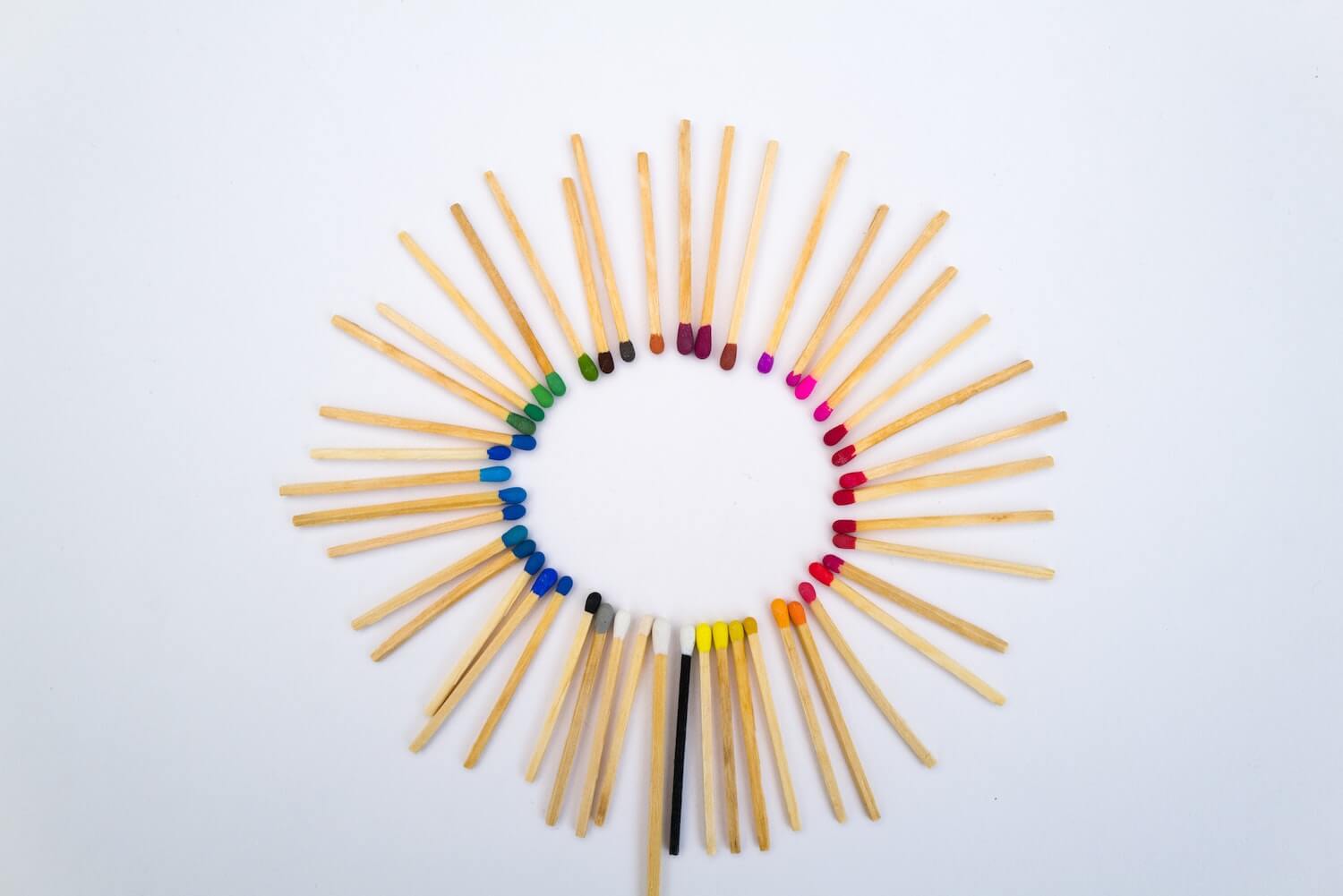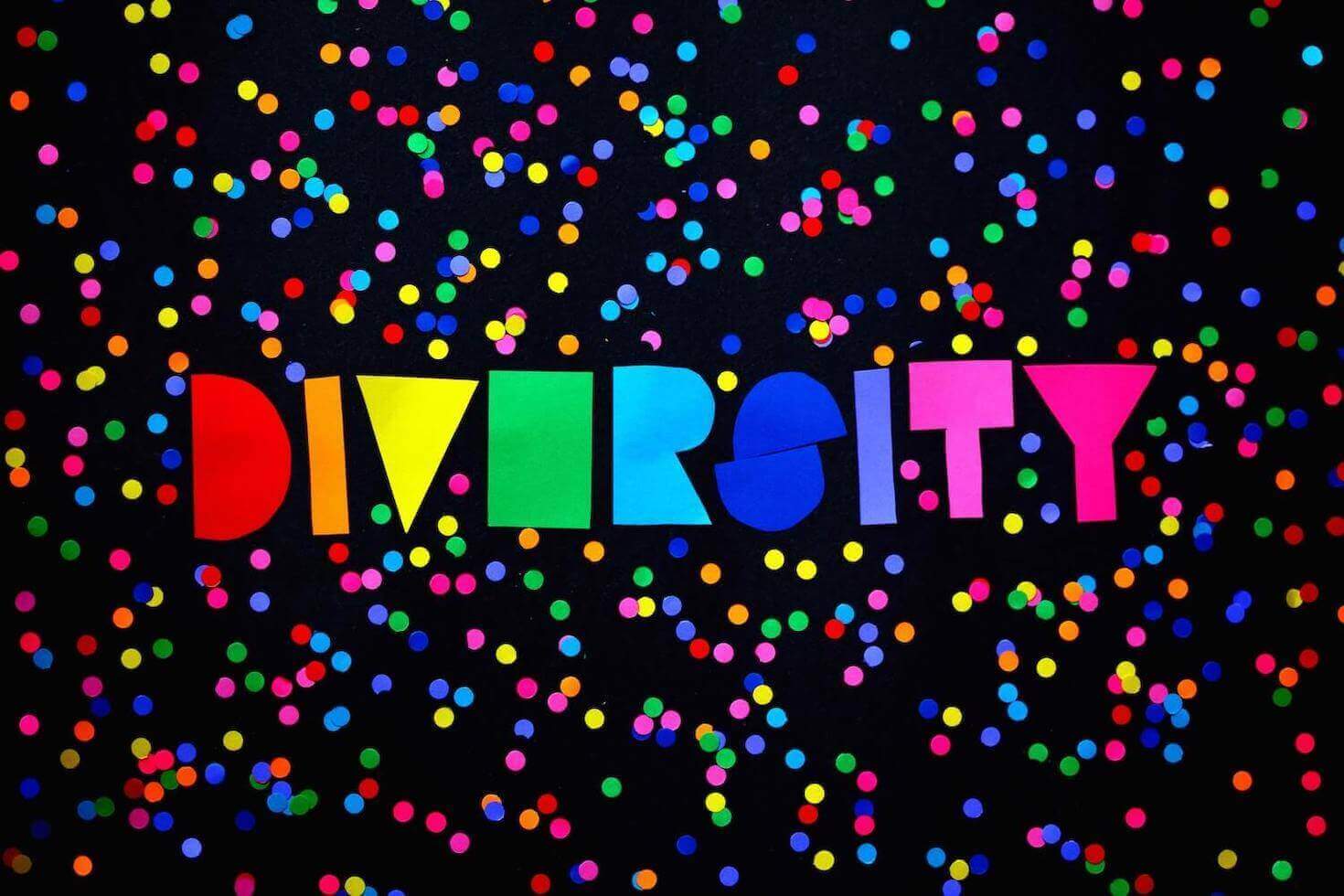This article is based on a discussion that took place at The Women in SaaS Summit 2022. Get the full unedited discussion OnDemand right here.
In the grand finale of our women in SaaS series, we arrive at the core mission statement of this saga: Enabling women to become the best leaders they can be! If you’ve been hanging with us over the last couple of weeks, you’ll know we’ve covered the following: Mentorship and career progression, taking risks and parental leave.
These are all small but crucial pieces in the overall puzzle of enabling women to succeed and strive in SaaS.
And who better to lead this final discussion than Tanya Strauss, Director of Customer Success at Druva. She was joined by Cherry Manrao Rangnekar, Former Vice President of Developer Relations & Community at Docusign, Jessie Miño, Customer Success Manager at Robin and Alexandra Monks, Senior Product Manager at Wayfair.
Key talking points include:
- Our panelists
- What makes women great leaders
- Being a great mentor
- Finding a mentor
- Supporting other women to achieve
- The benefits of having a diverse workforce
Introducing our panelists
Tanya Strauss: Hey, everyone. So nice to be here with you today. I'm Tanya Strauss from Druva. Let’s start with a couple of intros.
Jessie Miño: Thanks, Tanya. My name is Jessie Miño and I’m a Customer Success Manager for Robin. Robin is the industry-leading flexible workplace platform for connecting people with rooms, desks, and each other for a more collaborative experience.
Something that’s always attracted me to leadership is the ability to help others. Being in a position where I can truly elevate teams and extend that reach to the entire organization has always been a motivator for me.
Cherry Manrao Rangnekar: My name is Cherry Manrao Rangnekar. I'm the Vice President of Developer Relations and Partner Business at Docusign. For those of you who are not familiar, DocuSign is a digital agreement platform.
Anyone who's purchased a home probably signed their purchase agreement and subsequent documents using our eSignature product.
I've been at DocuSign for approaching nine years. I'm just really passionate about empowering female leaders, so I'm excited to be chatting with you all today on this topic.
My leadership path has not been a linear one – I've hopped around a variety of roles. I started as a data engineer running SQL queries, then I moved to an analyst position. I’ve worked in marketing strategy and run an eCommerce.
I wasn't on a specific leadership path – I kind of fell into it. But since being here, I’ve been fascinated by the psychology of leadership and how to influence and lead an organization.

Alexandra Monks: I'll round out the panel here. Hi, everyone. My name is Alexandra Monks. I'm a Senior Product Manager at Wayfair where I lead the employee experience product group.
For those who are unfamiliar, Wayfair is an eCommerce company in the home goods space. Our mission is to be the destination for all things home and create a place where anyone anywhere can make that feeling of home.
I'm based in Chicago, and I've got a background in consulting, growth strategy, and eCommerce. I first became a people manager back when I was in consulting and I led different engagement teams.
From there, I’ve grown my leadership skills on the job as I've been granted more responsibility and more senior teams.
I've also been fortunate enough to have a few amazing mentors along the way, who’ve really helped guide me. I have a passion for mentoring others and helping them achieve their desired careers, whatever that may look like.
Tanya Strauss: That's awesome. I’m the Director of Customer Success for Druva, which is a data resiliency platform. We provide critical data backup and restore capabilities for companies that you work with and hear about on a day-to-day basis.
My journey toward leadership has been probably a little more linear than others have talked about. I used to be a customer success manager. That’s my area of passion – the entire post-sales experience in the enterprise sales world.
I love working with customers and seeing them enjoy the value they receive from the services and solutions that I've had the pleasure of working on.
What makes women great leaders?
Tanya Strauss: Our first question for today is, “What is it about you as a woman that makes you a great leader?”
What I feel makes us great leaders is something that I pulled from a wonderful book called The ideal team player by Patrick Lencioni. Patrick talks about how the ideal team player is humble, hungry, and smart – and by smart, he means emotionally intelligent.
Those are three characteristics that a lot of women share. We tend to be humble in the sense that we’re not afraid to have some grit and take on things that are maybe outside the immediate scope of our role.
As for being hungry, we have to be willing to do everything it takes to achieve a goal. Emotional intelligence is so important, and it's something that I think a lot of women I know embody as a characteristic.
Those are some of the things that I think make women exceptional leaders, and I feel like they inform my own leadership style.
Jessie Miño: I love the emotional intelligence aspect you mentioned – I think that's super important.
Related to that, I’ve also leaned more into leading with empathy – that’s a value that I've seen in great leaders and something that I try to imitate on my end as well.
Tied to that is being very mindful as a leader. I think it's our responsibility as leaders to create environments in which our colleagues are nurtured and energized, and our organizations are innovative and they flourish.
Having that mindful leadership angle means taking an honest look at yourself, leading without ego, and being willing to put that interest in others before ourselves.

Alexandra Monks: I love what you said there, Jessie. That resonates a lot with me. And Tanya, you were talking about humbleness which also makes great female leaders.
Something that I think about a lot as I look at my role as a leader is around building the best team – I think that's a huge part of what makes a great leader.
Whenever I need to make a new hire, I take the time to reflect on what I bring to the table and my opportunity areas, then I try to hire someone who's better and stronger than me in those areas.
Once those people are on the team, another part of that team-building piece is placing a huge emphasis on career development.
By focusing on frequent career development conversations and understanding my team's career aspirations, I can help get them those opportunities to demonstrate their skills or grow in their careers.
Having that air coverage and space to make mistakes and learn fosters empowerment within the team. I view my role as a leader as being the best and strongest advocate for those on my team.
Cherry Manrao Rangnekar: We've all touched on emotional intelligence, humility, and self-awareness. It's interesting because a survey published in the Harvard Business Review found that women rank higher in 12 out of 16 core leadership competencies in comparison to men.
Some of the competencies that are listed are collaboration, driving results, agreeableness, coachability, connecting with others, and mentoring others.
I think women tend to be centered around the team. We're looking to enable and empower the team versus being more self-serving. That's the power that we bring.
Being a great mentor
Tanya Strauss: Jessie, I'd love to hear about your experience with a mentor and what it was about that experience that was so meaningful to you.
Jessie Miño: A more recent experience has been with Robin. They launched a mentorship program to connect employees with members of different executive teams.
This offered a new perspective and also broke down barriers of communication and accessibility. I feel that’s super necessary within an organization for us to flourish in different areas.
What made it meaningful for me was that I was able to gain access to knowledge from someone who had decades of experience on me.
Not only was I able to gain new perspectives on business and life, but I was also able to make a lot of progress with my goals because of this connection I made.
It was also a meaningful relationship that I made within the company. Now, I'm able to reach out for help and I have a sounding board for any ideas, which is super helpful as you're progressing in your career.

Cherry Manrao Rangnekar: For me, mentors have come at various levels in different stages, and so I feel like I have an arsenal of mentors that have been helping, and each has a specialization.
Some are at the executive level; some are at the peer level. It's really about getting their perspective and having a sounding board.
For me, the meaning has been in them giving me another lens when there’s something I'm not seeing. And they can be a sounding board for me when I’m facing an issue.
It’s so valuable being able to leverage experience and expertise in a meaningful way, and of course, to build a strong connection, and hopefully a friendship.
Tanya Strauss: I had the pleasure once of having an executive or career coach. I remember talking to her about my mentorship experiences, and she was telling me that she believes that everyone, especially women in the professional realm, needs to have a cadre of support around them.
She was talking about the different categories to have – people who are advocates for you, people who are sponsors for you, people who are coaches for you, and people who are mentors for you.
Thinking about all of those different components, some of them can be fulfilled by a manager, but some of them can be fulfilled, as you said, Cherry, by peers or even by people who report to you.
Finding a mentor
Alexandra Monks: My first piece of advice when you're seeking out a mentor or mentorship program is to think about what you want to get out of the relationship. Is there something specific that you want to work on, or are you just looking for general career advice? I think this will help you find the right person or program.
For example, if you want to pivot career fields, you're probably going to select a very different mentor profile than if you're looking to move into the C-suite of your current company. You're going to want to get different things. You're going to want them to bring different things to the table.
We just talked about how it's okay to have more than one mentor – I've got several that I've connected with over the years, and I go to each of them in different moments when I'm looking for different types of advice.
I think that the best mentors I have are ones that I've met organically because they developed through a trusting relationship – they’re people that I feel comfortable being open and honest with.
I recognize that at times it can be intimidating to ask someone to be your mentor. It feels so formal and like you have to bring a whole pitch. My advice is that it's okay to start more informal.
Ask them if they'd be willing to get a coffee with you sometime and talk about your career or goals. Let them know that you value their input and want to hear their point of view. People appreciate that, and it’s a great way to begin developing that relationship more informally.
Jessie Miño: I love all of those points. Along the same vein, my advice would be to also network beyond your immediate circle. In my experience, there are often other untapped networks among coworkers and friends.
After you've identified what it is that you want to accomplish, go ahead and tap into those networks. Just be curious and find a mentor that aligns with your goals.
Something that inhibited me, in the beginning, was fear. Let go of that fear and worry about what this person will think of you. There's a certain give and take in the mentor-mentee relationship that can be super valuable, so if you lean into that experience and let go of those inhibitions, you will get the most out of it.
I was intimidated at first in my mentorship experience. I was wondering what they might think and worrying about making a good impression overall, but if I had let that set the tone for the connection, I wouldn't have received the benefits that I have throughout my relationship with this person.
You should also go into your mentorship brand new as if you've never had a mentor before. Everyone's had different experiences and different journeys, so you'll do yourself a disservice if you walk into the mentorship with biases.

Tanya Strauss: I used to work for ServiceNow, which had a lot of formal programs for women, like employee groups and networking opportunities.
But I actually found my most valuable mentor there by saying to my manager, “I'm looking to get promoted and I'd love to network with some people, maybe women in particular, who’ve gone through the promotion cycle here and could shed some light on what that looks like.”
I was connected with someone who's turned out to be a great friend and a wonderful mentor. She’s shared so many things with me, and we've watched each other's careers flourish as a result. It's just been such a pleasurable experience.
I think that mentors could be everywhere if you're on the lookout for them and not afraid, as Alex said, to seek someone out and see if a relationship develops organically.
Supporting other women to achieve
Cherry Manrao Rangnekar: Women can be very powerful allies for other women, and I think there are a few simple things we can do every day to celebrate and advocate for our female co-workers.
The first thing is to make sure that women's ideas are heard, recognized, and celebrated. Women sometimes get less airtime in discussions, and they're interrupted and given less credit for their ideas, so we need to speak up for ourselves, set an example in meetings, and encourage others to do the same.
When you hear a woman being interrupted, say you'd like to hear her finish. When a co-worker runs away with a woman's idea, remind everyone it originated from her by saying something like, “That’s a great idea, Joe. Thank you, Katie, for surfacing it.” Be the advocate for that woman and celebrate her accomplishments.
The second thing I would say is to just encourage women to go for it. We're prone to more intense self-doubt, I think, so really encouraging women to leave their comfort zone is important.
There's a commonly cited Hewlett-Packard study on internal hiring practices, which finds that men often apply for a job when they meet 60% of the requirements, but women only apply if they meet 100% of them.
So if a coworker is telling you she's not ready for new projects or a position, remind her of what she's already accomplished and has to offer. Be a thought partner and a cheerleader for her and encourage her to fake it till she makes it.

Tanya Strauss: Not so long ago, I was applying for a position, and I found myself pointing out to the hiring manager something in the job description that I didn't think I was capable of. The hiring manager, who was a woman, actually laughed and said, “This is exactly what the statistics say women do.”
I was shocked that I’d been called out on that behavior, and it brought my attention to exactly what you just described. Even with the best of intentions, we can hold ourselves back.
Jessie Miño: I love the point that you made, Cherry, about celebrating those wins. A word that I keep at the forefront as a guiding light is “co-elevation.” The more you help others, the more you help yourself, the team, and the organization as a whole.
If we help women to see those wins and show the organization what women are doing within, that's a way to support them and keep that motivation going.
Within the process, too, is being authentic but also being kind. That lends transparency and authenticity, which is a good base for having effective and honest conversations that will lead to opportunities to see what it is that women need, so you can jump in and help them however you can.
Alexandra Monks: I love that term co-elevation, Jessie. I'm gonna steal that with pride and use it in my organization.
I think it's that whole idea of being an advocate for others when decisions are being made, whether those are hiring decisions, packages for those hiring decisions, stretch opportunities, promotions, raises, or work-life balance. Being an advocate for others when those decisions are being made is so important.
Something else I think about a lot is just asking others, “What can I do to help you? How can I remove roadblocks for you? How can I be your best advocate? What do you need from me to get there?”
I think a lot of times, people, especially women, are hesitant to ask; we don't want to be a bother. But if we open the door for people to express what they need, we can be great allies.
Building up your confidence as you celebrate your successes
Jessie Miño: I think everyone should record and keep track of their wins, whether it's in a journal, Google Docs, or whatever works for you. This will allow you to highlight your accomplishments and remind yourself of them when you need to.
In my case, I created a “GG” folder on my desktop – that stands for “Good Game.” Anytime an email or a Slack message comes in that highlights either customer feedback or internal feedback showing that I've done a good job, I'll just screenshot it, put it in that folder and keep it in my back pocket.
With that, on those days that you're not really feeling it or you're feeling a little down about yourself, it's a good reminder of what you've done and what other people have acknowledged you for.
It’s also a reminder that if you've been able to overcome challenges and accomplish those goals that maybe you didn't think you’d be able to, you can keep doing it and doing it well.

Alexandra Monks: I do the exact same thing – that's so funny. I keep the wins and feedback that people give me throughout the year so that I can have it to advocate for myself. It’s like a mini-resume of wins for when it’s time to go and ask for that promotion or that next opportunity.
Something that one of my first mentors taught me, which has been such a valuable lesson, is that no one's going to advocate harder for you than you will advocate for yourself. The list helps me do that.
When I'm creating that list, I try to think about how I can use data to support my wins and impacts. The beauty of data is it’s objective, right? And it can help you feel like you're reporting the numbers, not just boasting.
I put this into practice by using metrics, for example, NPS, team attrition data, customer satisfaction scores, and efficiency improvements. I measure my impact so I can communicate my success in a very objective way.
This is something that I coach my team on as they're working on their career paths. I think it's really, really valuable.
Cherry Manrao Rangnekar: I’m, again, in total agreement with both of you. I'm a data geek, I measure and report on everything, and I think this idea of capturing the wins as you go is wonderful.
The other thing I tell my team when the confidence question comes up is to go on a roadshow and do presentations. I even tell my team to actively interview externally.
There's no better practice for building confidence and advocating for yourself than having to pitch yourself to a new company and introduce yourself to a new team. It forces you to compile that story and that narrative.

The benefits of having a diverse workforce
Cherry Manrao Rangnekar: There are so many benefits, but I’ll bucket them into three areas: driving innovation, bottom-line impact, and attracting and retaining talent.
Innovation stems from the ability to approach an issue and find solutions from a different perspective.
And so when you have teams of people with different skills, life experiences, and cultural backgrounds, you're gonna get fresh solutions, and those solutions are going to be relevant for everyone.
It's almost impossible to innovate in the way that you need and at the speed that you need without diversity.
There are a gazillion and one studies showing the bottom-line perspective benefits. BCG states that businesses with above-average diversity report 19% higher revenue.
If you look at it from an ethnic diversity perspective, McKenzie has put out a report that companies with higher levels of ethnic and cultural diversity are 36% more likely to have higher financial returns.
Even at a board level, companies with a higher percentage of female directors perform better than those without. They see a 42% greater return on sales and a 53% higher return on equity. So we know that diversity drives the bottom line, and you can measure the impact.
And then there’s the impact on talent. This new generation coming into the workforce has grown up with the idea that diversity and inclusion are critical.

They're looking for D&I initiatives in organizations, and they want to see those companies doing more than just making money and making a social impact. And so I think diversity increases your pool and allows you to attract the right type of employees.
A bonus item is it's more fun, right? Diversity creates more engagement and energy. Plus, the more energy the team has, the more creativity and efficiency you'll see. It's a win-win across the board.
Tanya Strauss: Another word I would add is “safety.” Having a diverse organization creates a sense of safety for anybody who comes from a minority background. I think that's important for that snowball effect of creating an organization that represents diversity well.
Jessie Miño: One other point that I feel goes beyond just the exterior or our experiences and weaves into who we are on the inside is about cognitively diverse employees.
Just to give a little bit more background, cognitive diversity is defined as differences in perspectives or information processing styles.
Studies by the Harvard Business Review have shown that teams with more diverse cognitive abilities show faster and more advanced problem-solving skills when working together.
That's another level to add to the diversity that we should be taking into account when having new people join our teams.
Tanya Strauss: That's awesome Jessie. I’m the mother of an autistic child, and when I think about him, I think about innovation because he asks totally different questions from the ones I've generally formed on those subjects. He's constantly identifying a different lens to look at things through.
If we're not asking different questions, and if we don't have a diverse organization that's asking different questions, then we're not facing the future with them with an innovative spirit. So thank you so much for bringing up that point; I really appreciate it.
Enjoyed this article... why not check out our exclusive content with a FoSaaS membership plan?





